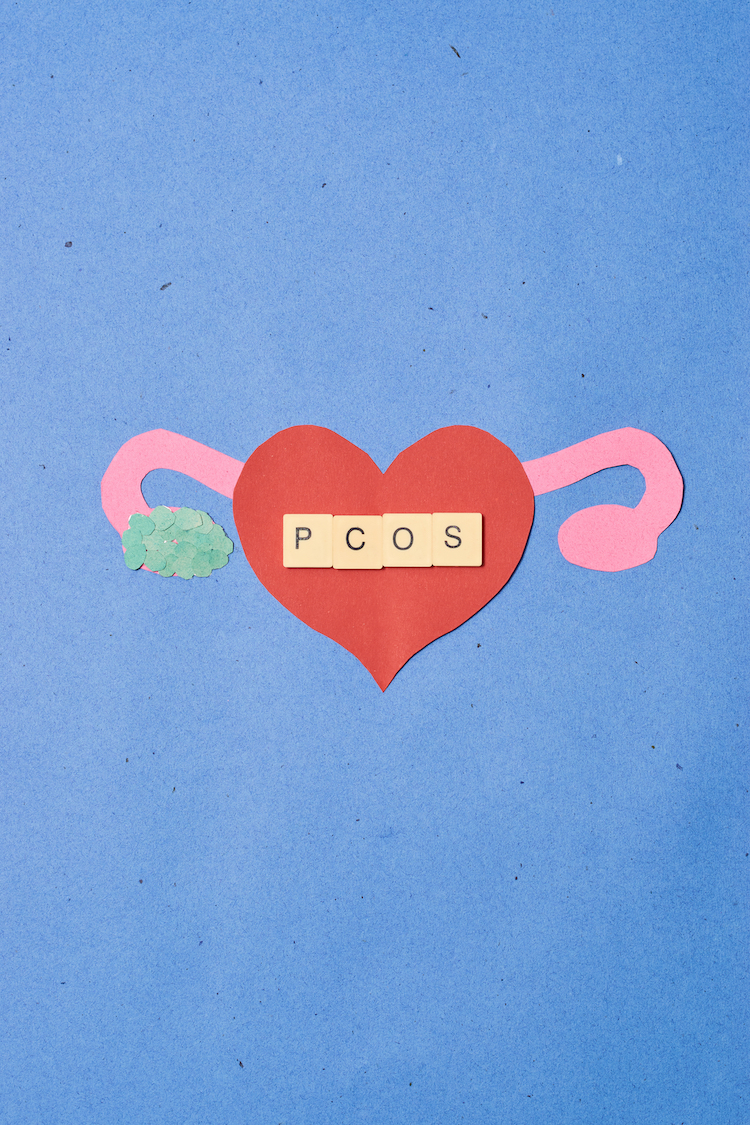
Not Your Mom’s PCOS
Polycystic (pronounced: pol-ee-SISS-tik) ovary syndrome is a common health problem among teens and young women affecting almost 1 in 10 people. It often begins during adolescence and signs and symptoms may look different in each individual and across the stages of life – that’s why your PCOS may not look like your mom’s PCOS or even your friend’s PCOS. Because PCOS is especially challenging to recognize in teenagers it often goes undiagnosed. But if left untreated it puts teens at risk for diabetes, metabolic syndrome, and infertility as they mature.
While the name PCOS comes from the tiny cysts or bumps sometimes present on the ovaries, these cysts don’t tend to be harmful or need removal. When you really think about it the name is rather distracting so let’s focus on what the main concerns are. PCOS is caused by an imbalance in the hormones in your brain and your ovaries. Hormones are chemical messengers that affect how our body works. Having PCOS means your ovaries don’t get the correct signals to ovulate “release eggs” consistently which in turn results in your periods being too close together, or more commonly too far apart. Some may not get a period at all. Having PCOS often means your ovary produces extra testosterone hormone. Skin cell and hair follicles can be very sensitive to even small increases in testosterone causing bothersome acne or body hair. Blood sugar and insulin levels are also frequently elevated in people with PCOS placing them at risk for diabetes. Sleep, mood and weight may also be affected.
Could I have PCOS?
If you have some or all of the above symptoms, you might have PCOS, however, only your doctor can tell you for sure.
What will my doctor do to diagnose PCOS?
Your doctor will ask you a lot of questions about your menstrual cycle and your general health, and then do a physical examination assessing for acne, amount of body hair and signs of elevated insulin levels among other things. Your doctor will likely recommend blood tests to check hormone levels, glucose, insulin, and lipid levels. They may also want you to complete an ultrasound test to take a picture of your reproductive organs (ovaries and uterus).
How is PCOS treated?
If a diagnosis of PCOS is made your doctor will work with you to formulate a management plan. While there is no cure for PCOS there are solutions which include hormonal and non-hormonal medications as well as working towards a healthier lifestyle. The goals of treatment include;
- correct the hormone imbalance
- lowering the level of testosterone which results in improvements in acne and lessens hair growth
- regulate your period
- lower the risk for endometrial cancer (which is slightly higher in young people with irregular periods)
- reverse prediabetes and lower the risk of diabetes
- decrease cardiovascular risk
- improve mood, sleep, and energy levels
- optimize future fertility
Will PCOS affect my ability to have children some day?
It’s important to remember people with PCOS have healthy eggs and a normal uterus. They have difficulties ovulating – the process by which eggs are released from the ovary. Many people with PCOS have challenges getting pregnant while others have no trouble at all. Learning how to optimize how your body functions is key and there are also medications available to lower insulin levels and help you ovulate more consistently. Talk to your doctor about your symptoms and discuss what options are best for you.
TOP PCOS TIPS:
Diet, exercise, and mental attitude are all keys to wellness.
Diet: when possible, adolescents and young women should work with a parent or guardian on budgeting, meal planning and meal prep.
- build nutritional understanding
- balance your carbohydrate foods with proteins and healthy fats, all of which your body needs
- educate yourself on healthy portion sizes
- don’t forget about healthy snacking
Exercise:
- adding exercise or increasing the exercise you already do will help decrease your insulin levels and in turn help you manage your PCOS
Head space:
- try not to get frustrated or focus on “weight” instead concentrate your efforts on taking care of your body – eating well and exercising regularly
- stay positive: taking care of your body IS doing something good, even if you don’t see a big change in your weight
- it’s important for young people with PCOS to know they are not alone. Helpful resources are available on The Center for Young Women’s Health website and it offers a free and confidential monthly online chat for teens with PCOS.
Talk to your doctor about managing your PCOS. Many young people with PCOS need to take medication, even with good nutrition and exercise. Having a diagnosis without an easy cure can be difficult, finding a doctor who knows a lot about PCOS and is someone you feel comfortable talking to is very important.


